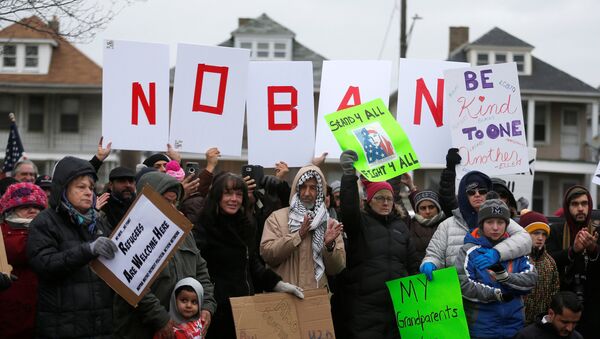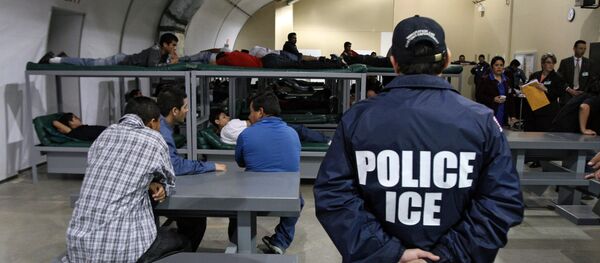Visa restrictions on six nations will be tightened when the provision goes into effect: Iran, Libya, Somalia, Sudan, Syria and Yemen. Unlike the chaos and protests that marked the January travel ban, authorities predict that this ban will be implemented in smooth and orderly fashion.
Travelers abroad & stateside who may be effected by #MuslimBan for legal assistance contact @nobanjfk & @thenyic👇🏽#NoMuslimBanEver #NoBanJFk pic.twitter.com/qXbhYN3T86
— Murad Awawdeh (@HeyItsMurad) June 29, 2017
Those from the six listed countries who already have visas will be allowed into the United States. Those without valid visas will need to prove an established relationship with a person or organization (such as a business) in the United States.
As with the original order, left-wing groups have challenged the new measures as racist and draconian. The American Civil Liberties Union (ACLU) called the new order an "extremely restrictive" measure meant to "disparage and condemn Muslims."
The original executive order, handed down in January, saw around 750 people detained, including those with previously approved visas. That restriction has been significantly slackened now, with immigration officials having been explicitly instructed to leave those with valid visas be.
One of our legal interns is among the team of attorneys and advocates at Logan Airport to support travelers affected by the #MuslimBan. pic.twitter.com/WDcjGj9eD8
— ACLU Massachusetts (@ACLU_Mass) June 30, 2017
Trump, who ran on a platform of stricter immigration policy, issued an executive order blocking a good deal of travelers from the six nations, including refugees. Trump claimed that the order was temporary and intended to prevent terrorists from entering the United States until a stricter vetting procedure could be established.
However, vetting and visa approval was already strict before the implementation of the new restrictions, leading to accusations that the ban was specifically targeting Muslims. Seventeen states joined the case opposing the original executive order. Derrick Watson, a judge with the federal District Court in Hawaii, issued a temporary restraining order against the second executive order, calling the order a "Muslim Ban" in March.
After a challenge from the Department of Justice, the Ninth Circuit Court partially overturned Watson's restraining order, upholding most of it. On Monday, the Supreme Court reinstated the second set of restrictions, with the exception of those with a "bona fide relationship" with a US person or entity.
The State Department elaborated that to mean a parent, spouse, son, daughter, son-in-law, daughter-in-law, sibling or fiance already in the United States, but not a grandparent or grandchild, aunt or uncle, niece or nephew.
Business or professional links must be "formal, documented and formed in the ordinary course rather than for the purpose of evading" restrictions. In other words, one cannot skirt the regulations by forming a relationship with, say, a university for the express purpose of dodging the new executive order.
As for refugees, they are subject to similar requirements — except the United States has already almost filled its quota for 50,000 refugees in budget year 2017, making it unlikely for any new refugees to be able to secure entry.



